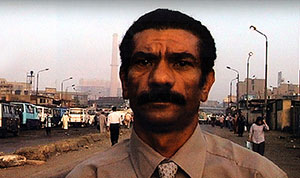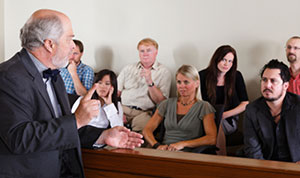Reproduced with the author’s permission from the work of Marcus Schmidt. With each citizen being politically active for 50 or more years, the core of this concept is to select one fiftieth of the voting age population each year and engage them in discussion and subsequently an online vote. This voice would constitute an additional house...Continue reading
Structural Alternatives
A Citizens’ Senate
Based on a paper by Alex Zakaras, reproduced with the author’s permission . The Athenian ideal of securing better representation (and interrupting power) by lottery is the focus of this model. There are two key differences with the Citizen Legislature and Popular Branch models which also emphasise the value of random selection. The first is...Continue reading
Demarchy
(Selective excerpts from writings by Brian Martin, University of Wollongong; and John Burnheim, reproduced with the authors’ permission.) Today we elect a small number of people who make decisions on a wide range of issues. Demarchy, by contrast, is based on a network of numerous decision making groups. Each group deals with a specific function...Continue reading
The Citizen Legislature: Sortition
(selective excerpts from ‘A Citizen Legislature’ by E. Callenbach and M Phillips reproduced with the authors’ permission.) Many reformers recognise the threat of money in politics, but solutions that only deal with campaign spending have failed to reach the root of the problem. The Citizen Legislature is a scientific way to select legislators so they...Continue reading
The Popular Branch
Drawn from the work of Prof. Ethan Leib, University of California A basic tenet of western democracies is for a Constitution which provides for three basic branches of government: executive, judicial, and legislative. But with parliaments seemingly increasingly unrepresentative of the people they govern, it is suggested that a fourth branch should be added –...Continue reading
Consensus Conferences
A consensus conference brings together lay people and subject matter experts to identify common ground in topics where there is technological or scientific complexity, and where key aspects of the issue are uncertain, contested or controversial. Generally the ratio of lay citizens (or “Citizen Panellists”) to experts is 2:1. In operation, the panel receives a...Continue reading
Multi-Body Sortition
Based on the paper ‘Democracy Through Multi-Body Sortition’ by Terry Bouricius, published to the Journal of Public Deliberation (Vol.9 Iss. 1, Article 11. Available here). This model seeks to divide the activities of lawmaking among several groups with different functions and different characteristics. The members of these bodies would be randomly selected rather than being...






